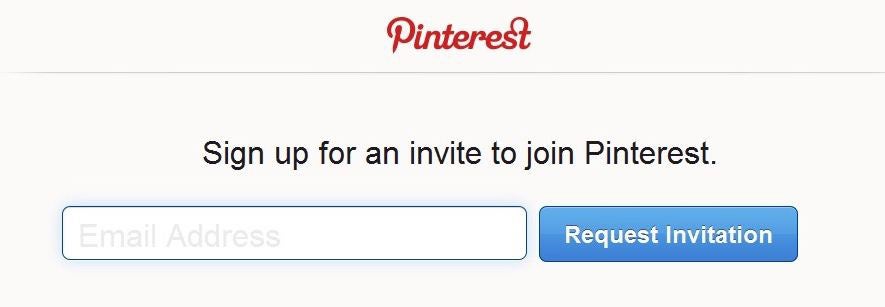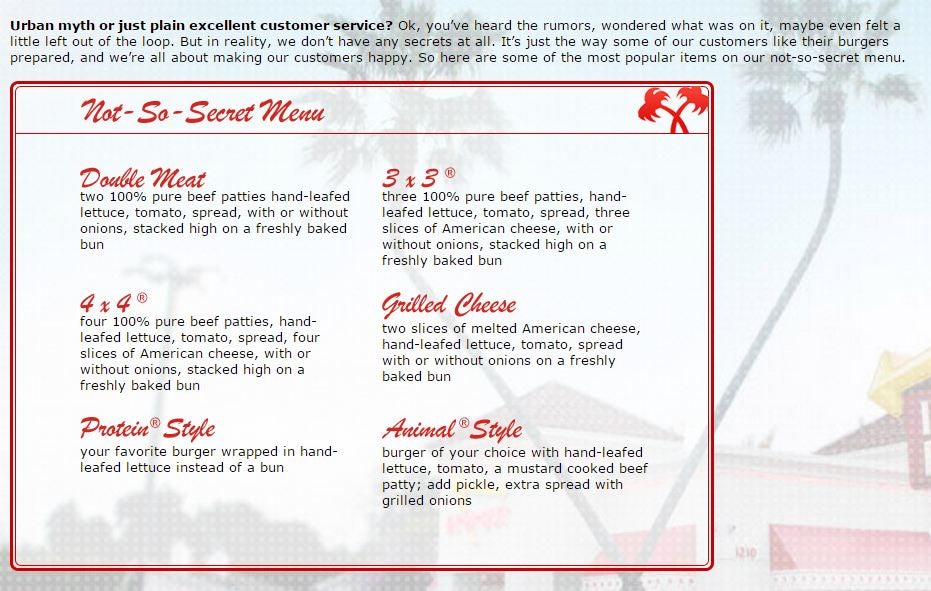Why The Customers Who Don't Convert Are Immensely Important There's an enormous audience of advocates you may be missing out on.
By Aimee Millwood Edited by Dan Bova
This story originally appeared on KISSmetrics
I love Warby Parker, but I'll never buy a pair because I have 20/20 vision. My boss reads the Buffer blog daily, but she's never used the tool a day in her life. We're brand fans, part of an enormous audience of advocates you may be missing out on.
While brand fans like us may not convert, we're immensely important to your brand. It's time to stop focusing all your attention on converting customers and start considering how to engage and retain your fans.
Content Marketing Builds Fans, Not Customers
We all know there's no point in pursuing content marketing if you're only looking at conversions. Impressions, reach, and shares matter just as much as the final purchase.
Measuring by customers and conversions goes against everything content marketing represents, so why are we suddenly considering looking at customers as the only valuable result?
As Rand Fishkin touched on in "The Greatest Misconception in Content Marketing," the greatest myth is that people absorb brand content and then immediately go to purchase a product. Instead, the path of content marketing is slow and winding, and (no surprise here) it may never end in a conversion.
I'm not suggesting you stop paying attention to sales, but I am suggesting that you start paying more attention to the power of brand fans. Look at the Buffer example I used earlier – while my boss may never use Buffer, she loves the blog so much she's constantly repping it to everyone at work, many of whom have started using the product simply because she loves the brand so much.
Content marketing is all about building relationships with people over multiple times, earning their trust through their experience with the brand. It's about gaining fans, people who have a budding relationship with your brand and care about what you're saying, not just what you're selling.
The Differences Between Customers and Fans
Customers buy from you. They shell over money for what you're selling. For this reason, customers are often valued the highest among a brand's audience. After all, without paying customers, there would be no business.
Yet customers may not love your brand. They may just need an item you're selling in that moment, or may stumble upon your service, try it out, and then move on. It's not necessary to have any brand loyalty in order to be a customer.
Yet fans are loyal. Brand fans are your cheerleaders.
Most of the time, they're also your biggest customers. But not always.
Research shows only 4.7% of brands fans are responsible for 100% of their social referrals. This statistic applies to referrals that end in conversion – not reach. Even within the measurable fans, a very small percentage is responsible for the majority of word-of-mouth.
Let's take a deeper look into why the minority of brand fans do the majority of the talking. It turns out, the talking isn't always all positive. Brand fans seem to take it upon themselves not just to praise their favorite brands, but also criticize them. Sometimes brand fans who double as customers can also serve as your harshest critic.
A study found that 5% of negative product reviews on a site were from customers who never purchased the item. However, these people weren't bots or fake reviewers – they were real customers and huge brand fans. It turns out that this small percentage was leaving comments on items they had never purchased because they felt it was their duty to voice their opinions on products the company produced, even if they had never bought it. They felt they had enough experience with a brand that they were "self-appointed brand managers."
This doesn't mean brand fans should scare you: it means that you need to pay attention to them, for better and worse. Listening up to what these customers are saying can give you insights into customer sentiment that you would never get from an average buyer.
When Brand Fans Aren't Buying
Many brands forget about fans who aren't necessarily customers. These fans love what you represent, even if they may not buy what you're selling. Or, they love you and buy from you, but not as frequently as your biggest customers.
Yet they are much more valuable than customers who buy frequently, because they're responsible for spreading word-of-mouth marketing that brings you new traffic.
Here's a personal example: There are some brands that I absolutely love, but I rarely, if ever, buy from them.
I may be head over heels for Chubbies' spot-on Millennial content marketing, but since I'm not a 20-something male looking for short shorts, I'll probably never make a purchase from them.
Examples of Chubbies' amazing website copy
I love nearly everything Free People makes and stalk their blog like no other, but my budget only allows me to scan their sale rack.
I drool over the Mexican chain Chipotle, and given the chance would probably eat there at least once a week, but I live in Israel, where, sadly, Chipotle has yet to expand.
Although I'm not a regular customer, I'm constantly recommending these brands and others to my friends (and really, anyone who will listen).
Want an incredible burrito? You must go to Chipotle. Want the perfect boho chic sweater? Free People's your store. Looking for a new pair of summer shorts? Chubbies is just for you.
To these brands, and many others, I'm invisible. Yet what these brands don't realize is how important I am to them. Sure, I don't contribute monetary value, but I do give them tons of word-of-mouth marketing, which can bring them more loyal and valuable customers. Additionally, I bring them targeted, trusted referrals, which are much more valuable than any marketing they could do themselves.
As the customer journey to purchase becomes more fragmented, it is more difficult to track where referrals are coming from but, at the same time, more important than ever to identify if you have brand fans who are repping your company and bringing you valuable sales.
How to Find & Keep Your Brand Advocates
In order to keep your brand advocates, you need to know who they are. Social media is a smart place to start. Look for people who are constantly mentioning you, re-sharing your content, or reaching out to you.
Brand fans don't worship for nothing. It's important to reach out to them and appreciate them in order to keep their ties strong.
How do you build more brand fans through building the loyalty of those you already have?
Create a Community From Exclusivity
People like to belong, and a feeling of exclusivity can strengthen this urge. People want to be included in exclusive circles. A lukewarm customer can turn into a fan if they feel they're in on something special.
Look at brands who use invite-only launches to get people clamoring to join before they even know what they're signing up for. Facebook and Gmail are some of the most famous and successful brands who managed to turn invite-only launches into viral popularity. But others, like LinkedIn and Pinterest, have also followed suit.
Pinterest uses the invite-only approach
Another example of creating community through exclusivity are restaurants and bars with secret menu items. Look at the popular burger chain Inn-n-out, which has vegetarians salivating at the items on their secret menu (secret grilled cheese, anyone?). They're turned their menu into a "not-so-secret" menu, letting their customers know they're in on it.
Inn-n-out's "Not-so-secret" menu
For proof of how this strengthens fans, look no further than websites likeStarbucksSecretMenu.net, a website created "by fans for fans" to share and find secret Starbucks menu items.
A fan page dedicated to Starbucks' off menu items
How can you replicate this? Create a VIP program for fans to gain insider discounts and information, or exclusive sign-ups for product feature launches. Use copy that reinforces the exclusivity and secrecy of these campaigns.
Additionally, allow insiders to invite their friends, so they feel like they have a secret pass. In this way, they become advocates for your brand while also spreading the word. Look at how brands like Airbnb give incentives for advocates to invite others.

How to use invite-a-friend to boost growth
Using this model of referrals is profitable as well: an HBR study of a German Bankshows customers who come as the result of a referral are 18% more likely to stay loyal and generate 16% more profit than other customers.
Build Emotional Investment
What makes fans so powerful for brands? They're not interested in the latest designs or the next sale: they love brands because of what they represent.
Marketers and advertisers both know emotional connection is the most powerful way to get customers attached to your message. While a strong emotional message is important for brands across all contexts, you can also use it to identify fans.
A study of cars post-recall found that Toyota came out on top compared to GM, Ford, and Hyundai. Why? Their fans are loyal because of the emotional connection they have to the brand, built from powerful messaging that re-instills their belief Toyota is reliable, strong, and durable. Despite recalls, fans emotionally connect and believe this message, causing them to stay loyal despite slip-ups.
Integrated with user-generated content (UGC) marketing campaigns, this is a powerful way to not just promote what you want customers to feel for your brand, but to find out what they actually do. In other words, asking fans to submit photos in a UGC campaign showing how they use your product or what they love about your brand can give you valuable insight into what language they're really using, the context they see your brand in, and the emotions they associate with your brand.
Coca-cola's "This is Ahhh…" campaign and commercial identifies how they got their fans involved emotionally by asking what taking a sip of Coke means to them. In addition to encouraging thousands of fans to think about Coke and their connection to it, they gathered real insight into what consumers thought about their brand, straight from their customers' mouths.
Reward Fans and Customers
Offer rewards for those who aren't necessarily buying, but are spreading the word. Rewards shouldn't just go to paying customers. Look for brand advocates who are repping your brand online and off, and find ways to reward them.
This can be as simple as giving them a personal shout-out on social media. Check out what Chik-fil-a did by responding personally to a fan's tweet about her love for the company.

Personal responses to fans by Chik-fil-a
A year later, the fan was still Tweeting her love for the brand. This shows how acknowledging fans can make recognition a reward in itself – and a reward that keeps on giving.

Fans stay connected when they feel recognized
In addition to social media recognition, you can also reach out to fans with a gift or discount, and watch how their allegiance sours and the word-of-mouth marketing comes pouring in.
Rewarding your fans shows them that they matter to you – and this is important if you want to keep them around. Fans may love you, but if they feel invisible, they may not be loyal forever. Find ways to show them just how much they mean to you, whether through VIP insider treats or social mentions that show your appreciation.
Conclusion
Sales drive businesses. Without paying customers, businesses would cease to exist. But sometimes the ones who aren't forking over money are just as important – if not more so – than the ones who are.
Fans are powerful sources of word-of-mouth marketing and steadfast devotion that can bring those paying customers straight to you.














